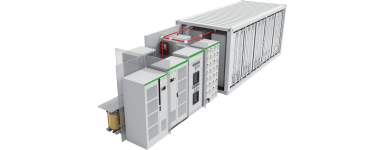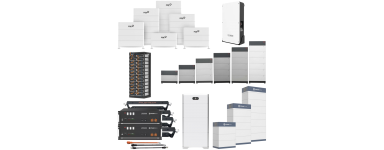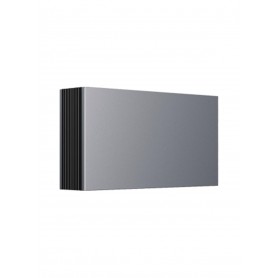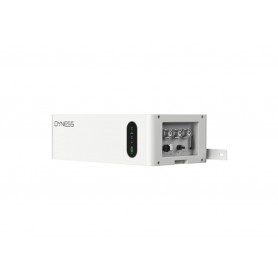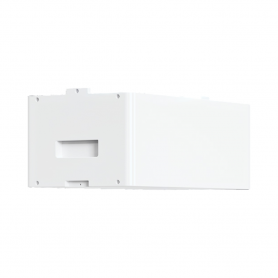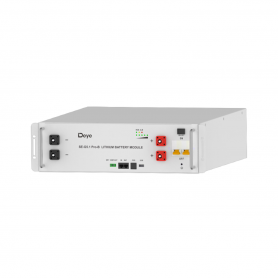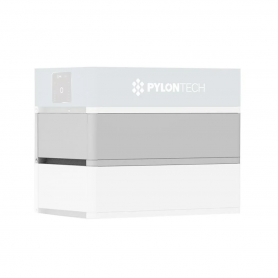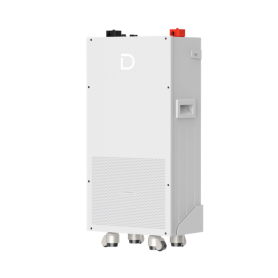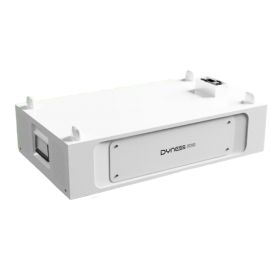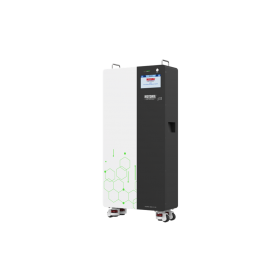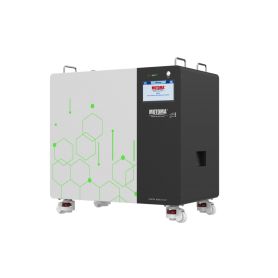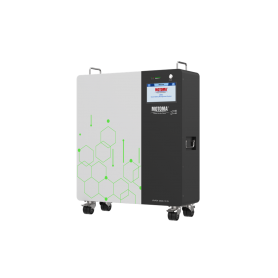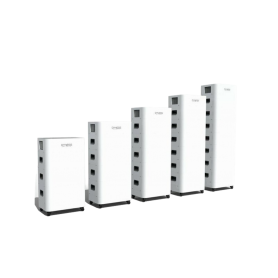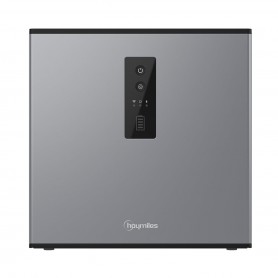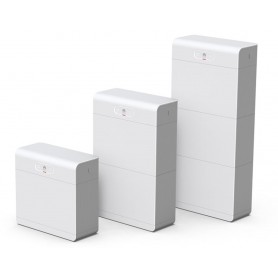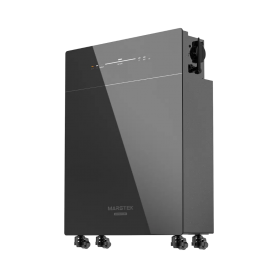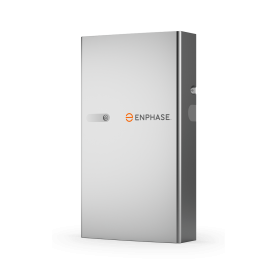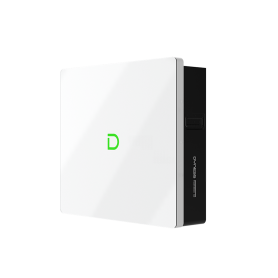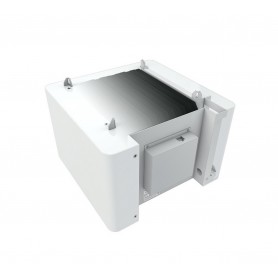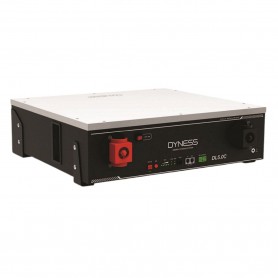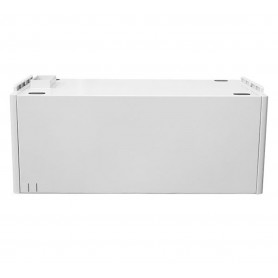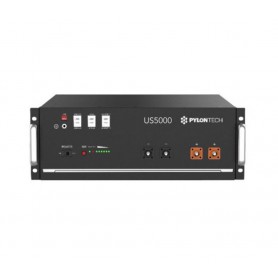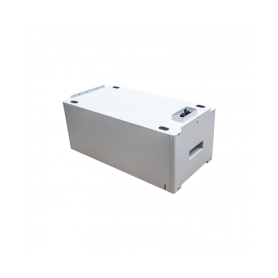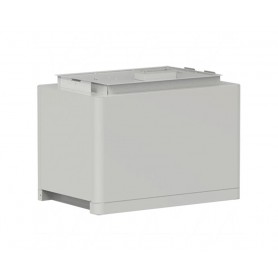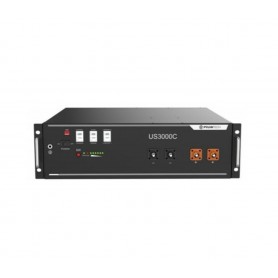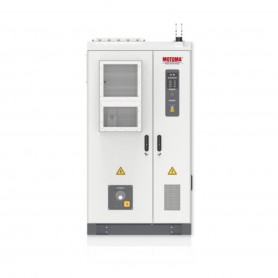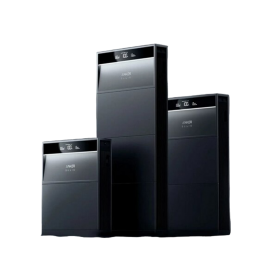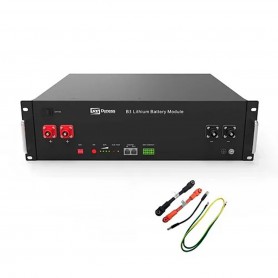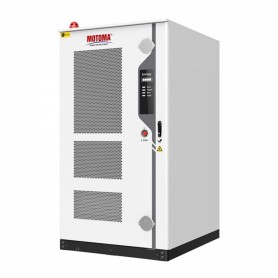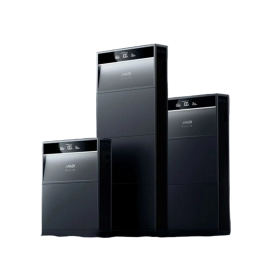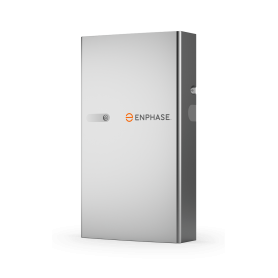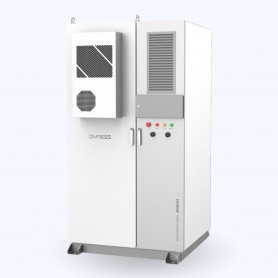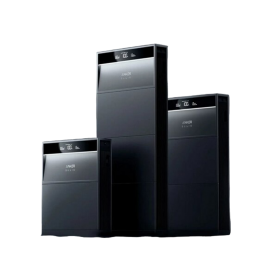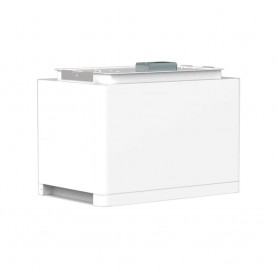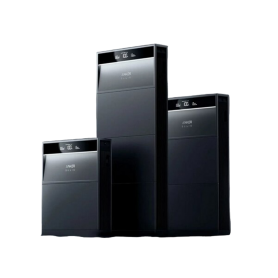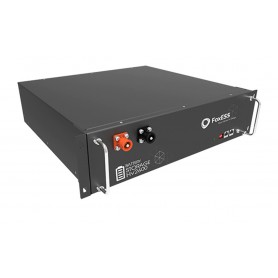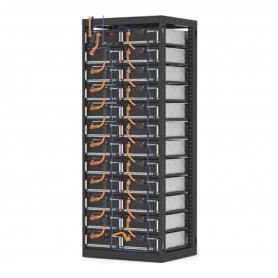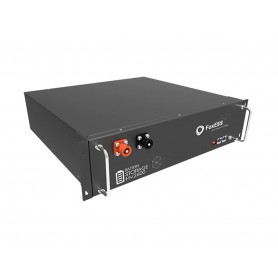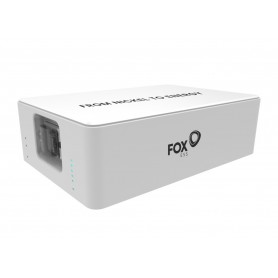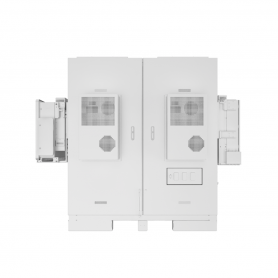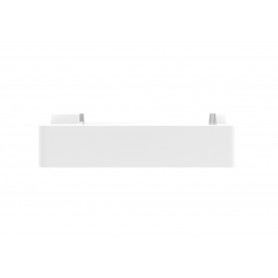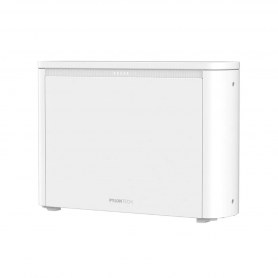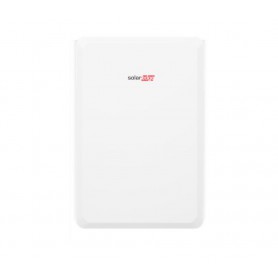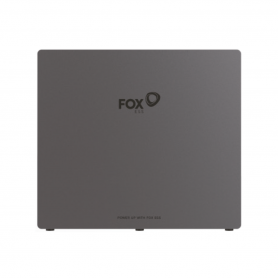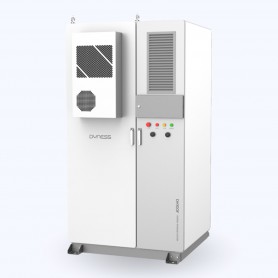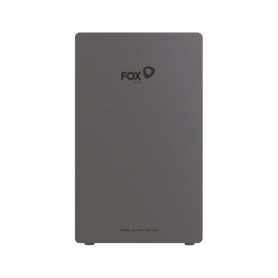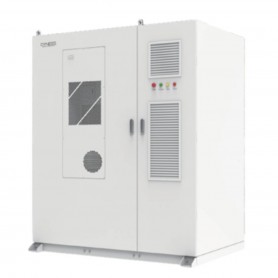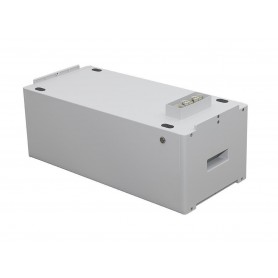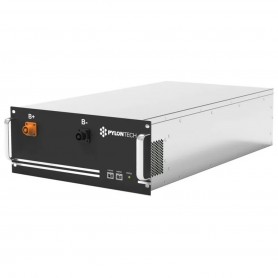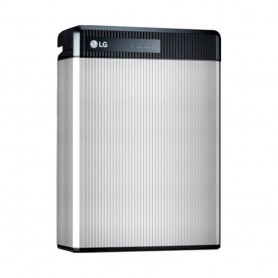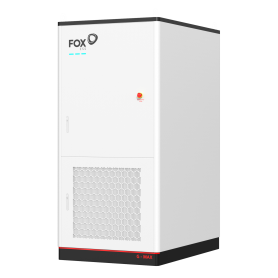Menu
Filters
Solar Batteries
Solar BatteriesThere are 58 products.
Subcategories
-
Commercial battery systems
Commercial battery systems are becoming increasingly popular as businesses look to reduce their energy costs, improve their sustainability, and ensure energy resilience. These systems store excess energy generated by renewable sources like solar panels or wind turbines, allowing businesses to use it during peak demand periods or when the grid is unstable.
Key Components of Commercial Battery Systems:
- Battery cells: The fundamental units of energy storage. Lithium-ion batteries are the most common type used in commercial systems due to their high energy density and long lifespan.
- Battery Management System (BMS): This sophisticated electronic system monitors and controls the battery cells, ensuring safe and efficient operation.
- Inverters: These devices convert DC power from the batteries into AC power that can be used by commercial facilities.
- Energy Management System (EMS): The EMS software integrates the battery system with other components of the electrical grid, optimizing energy flow and usage.
Benefits of Commercial Battery Systems:
- Reduced energy costs: By storing excess energy, businesses can reduce their reliance on the grid during peak demand periods, leading to lower energy bills.
- Improved energy resilience: Battery systems can provide backup power during grid outages, ensuring business continuity and minimizing downtime.
- Increased sustainability: By storing renewable energy, businesses can reduce their carbon footprint and contribute to a more sustainable future.
- Peak shaving: Battery systems can help to reduce peak demand, which can lower overall energy costs and improve grid stability.
- Time-of-use rate optimization: By storing energy during off-peak hours and using it during peak hours, businesses can take advantage of time-of-use rate structures.
Types of Commercial Battery Systems:
- Lithium-ion batteries: The most common type due to their high energy density and long lifespan.
- Lead-acid batteries: While less efficient than lithium-ion batteries, lead-acid batteries are still used in some commercial applications due to their lower cost.
- Flow batteries: These batteries use liquid electrolytes to store energy, offering long lifespans and good scalability.
Factors to Consider When Choosing a Commercial Battery System:
- Energy storage capacity: The system should be able to store enough energy to meet your business's needs.
- Power output: The system should be able to deliver the required power to your facility.
- Cycle life: The number of times the battery can be charged and discharged before its capacity degrades significantly.
- Scalability: The system should be scalable to accommodate future growth or changes in your energy needs.
- Maintenance requirements: Consider the ongoing maintenance and monitoring needs of the battery system.
- Return on investment: Evaluate the potential cost savings and other benefits of the battery system to determine if it's a worthwhile investment.
Conclusion
Commercial battery systems offer a range of benefits for businesses, including reduced energy costs, improved resilience, and increased sustainability. By carefully considering factors such as energy storage capacity, power output, and return on investment, businesses can select the right battery system to meet their specific needs.
-
Home Energy Storage
The Future of Sustainable Living. With a home battery, you can store self-generated solar energy and use it when you need it. This leads to greater energy independence, lower energy costs, and a smaller carbon footprint.
Showing 1 - 58 of 58 items
-
Motoma 16kWh 51.2V 320ah M90 Pro Solar ESS LifePo4 Storage Battery
MT002MoreThis 16 kWh 51.2 V 320 Ah LiFePO4 battery (M90 PRO) features an intelligent BMS, SOC design and remote monitoring. Optionally you can request...
-
MOTOMA 20kWh 51.2V 400Ah M91 PRO Solar ESS LiFePo4 storage battery
MT003MoreThis 20 kWh 51.2 V 400 Ah LiFePO4 battery (M91 PRO) features an intelligent BMS, SOC design and remote monitoring. Optionally you can request...
-
MOTOMA 10kWh 51.2V 200AH M88PW PRO Solar ESS LiFePo4 storage battery
MT001MoreThis 10 kWh 51.2 V 200 Ah LiFePO4 battery (M88‑PW‑Pro) features an intelligent BMS, SOC design and remote monitoring. Optionally you can request...
-
Marstek 5.12kWh, Back-Up / Off Grid output 2.5kW, The Ultimate Plug & Charge ESS + Meter
SD001-CBMoreFREE SHIPPING! For this product in Europa (excluding islands like Cyprus and Malta).
-
MOTOMA 100kWh/50kW BESS Industrial energy storage system
MT005MoreOur webshop offers optional services for the M50‑100: a tailored quote, installation in NL & Belgium (other countries negotiable), long‑term...
-
MOTOMA 215kWh/100kW BESS Industrial energy storage system
MT004MoreOur webshop offers optional services for the M100‑215: a tailored quote, installation in NL & Belgium (other countries negotiable), long‑term...
Showing 1 - 58 of 58 items

 en
en
 de
de  es
es  fr
fr  it
it  nl
nl 



















 United States.
United States.